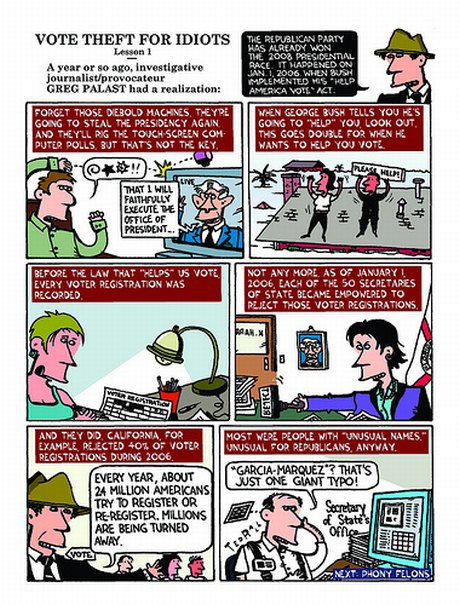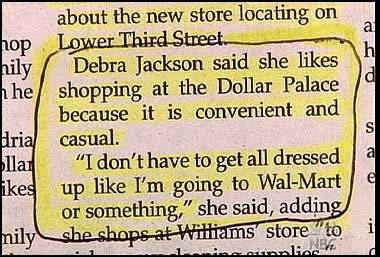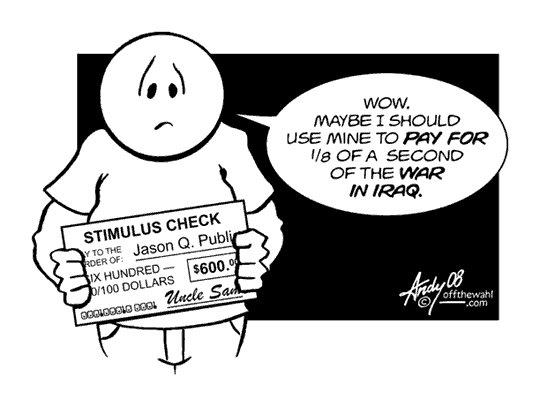by Eli Blake
Ever since the 2000 election, when Vietnam combat veteran John McCain burst onto the scene in the Republican Presidential primaries as a 'moderate alternative' to George W. Bush, it seems that he has led a charmed political life. George Bush is known to detest McCain personally, but he has needed him. Liberals held their fire because every now and then McCain throws them a bone (in fact John Kerry wasted valuable time and effort trying to convince McCain, who was the chair of the Bush campaign in Arizona, to defect and run on a ticket with him; what it also meant was that when John Kerry picked John Edwards for the ticket, everyone knew he was a second choice.) Independents ooze over the conservative McCain (and conservative he is, just look at his voting record,) as if they think he is one of them. Even Bush backers, like Pat Robertson (who thoroughly trashed McCain in South Carolina) have warmed up to him.And one of McCain's biggest assets, according to most of these people is that he eschews negative campaigning.
There is a good reason for that though. It's a tale that involves organized crime, corruption and murder. Let's say that John McCain never runs a negative ad against his opponents because he doesn't want them to dig too hard.
It's because McCain is where he is because of his marriage to his second wife, Cindy. No, Cindy Hensley McCain is not where the story begins. She was a young 25 when McCain married her (he was 43). According to the Arizona Republic on June 5, 1999, McCain joked that his marriage was based on a 'tissue of lies.' Both he and she had lied to each other, she claiming to be older than she was and he claiming to be younger. Yeah, I know-- what a good foundation for a marriage to start off on. To their credit the McCains however have stayed together. Or maybe there are other reasons...
One wonders what Cindy told McCain about her father. When did McCain learn how his father-in-law Jim Hensley made his fortune? Sooner or later he had to be dealt in on the 'family jewels.' After all, they helped finance a run for Congress and not long after that for the Senate.
Jim Hensley and his brother Eugene went to work after World War II for Kemper Marley, a wealthy wholesale liquor distributor. Marley, in fact, had once been a bookie, getting his start working for the Transamerica Wire Service, a betting service established by mafiosi Gus Greenbaum (who was murdered with his wife when their throats were slashed in bed in 1958). Until 1947, liquor was rationed by the government. Apparently Marley did quite well in spite of the restrictions, and in 1948 the reason why became clear. Eugene and Jim Hensley were convicted of falsifying records on behalf of Marley's distributorship, United Liquor (along with fifty other Marley employees) to conceal the illegal distribution of hundreds of cases of liquor. Jim Hensley got a six month suspended sentence.
In 1953, Jim Hensley, then the General Manager for United Liquor, was once more charged for doing the same thing again. Marley paid for top notch legal representation though (future Supreme Court Chief Justice William Rehnquist.) Hensley still went to prison, but took the fall when the rest of the company was cleared. According to an article in American Mafia.com, Marley rewarded Hensley for his loyalty to the organization:
When Hensley strolled out of the joint, Marley bought his silence with a lucrative Phoenix-based Budweiser beer distributorship.
That distributorship and the rest of Marley's empire did very well over the decades for both Hensley and Marley, making both men multi-millionaires.
In fact, Marley was interested in more than just liquor. In 1976, then Gov. Raul Castro, a Democrat, appointed Marley, then a billionaire and the state's richest man, to the state racing commission.
And that's when one of those pesky investigative reporters got in the way. The reporter's name was Don Bolles and he worked for the Arizona Republic. Bolles discovered a land fraud ring and other crimes that appeared to lead to Sen. Barry Goldwater and other movers and shakers in Arizona. And he discovered that Kemper Marley, newly appointed to the State Board Racing Commission, had connections to the Mafia. In fact, Marley was a close associate of Peter Licavoli, the mob boss for Arizona. Marley had also served as Chairman of the Board for Valley National Bank, which helped bankroll Bugsy Siegel's construction of the Flamingo in Las Vegas. Digging into Marley's past also uncovered his earlier work for Gus Greenbaum. The revelations forced Marley to resign from the commission.
And Kemper Marley and his associates in the Mafia weren't people whose business you interfered with lightly.
On June 2, 1976, Bolles climbed into his car and was blown apart by a bomb under the driver's seat. Pieces of his body were strewn around the parking lot. Bolles amazingly survived for eleven days and said to investgators on the scene, "They finally got me. The Mafia. Emprise. Find John (Harvey) Adamson."
Adamson was later convicted of the murder. But who hired him? That trail was never really followed up on, according to members of the Arizona Project, a group of reporters who began looking into mob ties after the murder.
Following Bolles' death, more than 30 journalists from the then-newly formed Investigative Reporters and Editors (IRE) group arrived in Phoenix to carry out their late colleague's work....
Don Devereux, another Arizona Project reporter, feels the IRE team may have trusted the authorities too much. "We accepted very uncritically their scenario. In retrospect, we were very naive to get lead around. It really isn't something that we should be running around congratulating ourselves about," says Devereux of the IRE investigation...
"The biggest disservice we did to Bolles was not paying more attention to him," says Devereux. "His dying words were words we should have glommed onto a little more seriously, because when he was lying on the pavement he said: `Adamson, Emprise, Mafia. ... Emprise was almost Bolles' white whale. He was obsessed by them...."
Emprise, a Buffalo, NY based sports concessionire with known mob ties, had a circuit of Greyhound racing tracks in Arizona. So who was named to the Racing Commission was of vital interest to Emprise. Enter Kemper Marley. Exit Kemper Marley, courtesy of Bolles.
The Phoenix police theorized that Marley wanting revenge enlisted the help of local contractor Max Dunlap. Dunlap then allegedly hired Adamson to carry out the bombing. Adamson claimed that plumber James Robison assisted him.
Over the years, Dunlap and Robison have maintained their innocence. Dunlap remains incarcerated.** Although, Robison gained acquittal in a retrial, he is still awaiting release from prison on a related charge. Meanwhile, the state paroled Adamson [in 1996], and he disappeared into the federal witness protection program.
The Phoenix police never even arrested Marley, who died in 1990.
**-- Dunlap has since died in prison after the source article was published.
Meanwhile, Jim Hensley remained a close confidante and associate of Kemper Marley. In fact, it was Bolles who wrote that the Hensleys had bought Ruidoso Downs horse racing track in New Mexico on behalf of Marley. Eugene Hensley later sold the track to a buyer linked to Emprise (linked here as described in the Phoenix Gazette, Jan. 4, 1990.)
One thing that Marley and Hensley didn't have-- governmental authority themselves. They had to depend on their friends in government to help them out. But then Hensley got a gift-- his daughter married the former Navy pilot and decorated veteran of the Vietnam conflict, John McCain.

 They are from the 1954 Signet (#S798) paperback edition, and are quite unlike the covers for any other editions that I've seen for Orwell's most well-known novel, which tend toward minimalism, with the numerical title almost always taking up the majority of the space. Part of me loves the lurid pulpish nature of these covers, and I'd love to see a modern revisioning of them, along the lines of what Night Shade and Jon Foster recently did for Jon Courtenay Grimwood's
They are from the 1954 Signet (#S798) paperback edition, and are quite unlike the covers for any other editions that I've seen for Orwell's most well-known novel, which tend toward minimalism, with the numerical title almost always taking up the majority of the space. Part of me loves the lurid pulpish nature of these covers, and I'd love to see a modern revisioning of them, along the lines of what Night Shade and Jon Foster recently did for Jon Courtenay Grimwood's  In case you can't read the over-the-top text on the back cover (which manages to not mention Winston Smith, Julia, O'Brien, Room 101, Ingsoc, or Oceania), here's what it says:
In case you can't read the over-the-top text on the back cover (which manages to not mention Winston Smith, Julia, O'Brien, Room 101, Ingsoc, or Oceania), here's what it says:
 Flowers, fishies, frogs and dolphins, and the most precious, cutesy color printing you ever saw: "Someone who loved me got me this t-shirt in Guantanamo Bay, Cuba!"
Flowers, fishies, frogs and dolphins, and the most precious, cutesy color printing you ever saw: "Someone who loved me got me this t-shirt in Guantanamo Bay, Cuba!" 









 UPDATE: The Stanford Daily, which originally reported on the round table, incorrectly attributed some of New York Times columnist Thomas Friedman's comments to Gen. Abizaid. Though Abizaid did say "Of course it's about oil, we can't really deny that," it was Friedman who said "
UPDATE: The Stanford Daily, which originally reported on the round table, incorrectly attributed some of New York Times columnist Thomas Friedman's comments to Gen. Abizaid. Though Abizaid did say "Of course it's about oil, we can't really deny that," it was Friedman who said "




